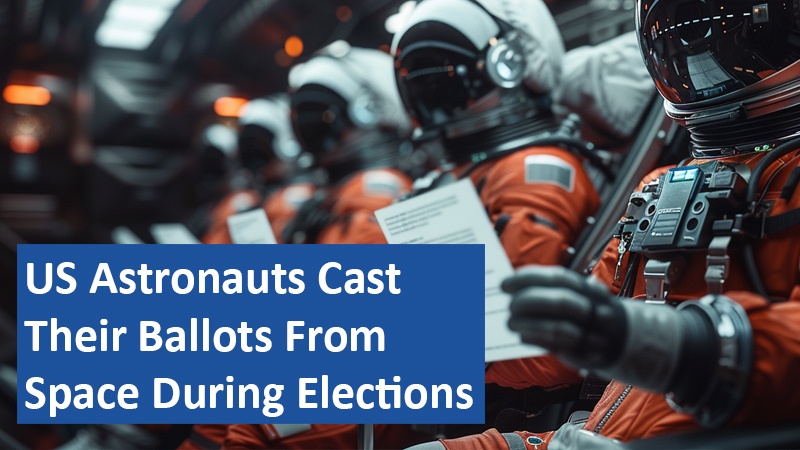Two American astronauts currently aboard the International Space Station will remain in orbit until 2025 but will still cast their votes in the upcoming U.S. election. While voting from space presents challenges, NASA has a plan in place to ensure they can fulfill their civic duties. Even miles above Earth, these astronauts will make their voices heard.
By Sadie Watkins
A Unique Voting Process

Astronauts Butch Wilmore and Suni Williams, who have been aboard the International Space Station since June, were originally expected to return before the November elections. However, NASA extended their mission due to safety concerns, meaning they will be voting from over 200 miles above Earth. Thanks to a special Texas law, they can vote via absentee ballot, making this unprecedented situation manageable. This law allows astronauts, who typically reside near NASA’s Johnson Space Center, to vote remotely.
NASA’s Voting Procedure for Astronauts
The voting process for astronauts is far from simple. After completing their electronic absentee ballots, the documents are encrypted and uploaded to the space station’s onboard computer. From there, the ballots are transmitted via NASA’s tracking and relay satellite system to a ground antenna in New Mexico. Once received, the ballots are sent to NASA’s Mission Control in Houston and eventually to the local election officials responsible for counting the votes.
The Importance of Voting, Even in Space
Both Wilmore and Williams have emphasized the importance of participating in the election, even from space. During a press conference, Williams noted how meaningful it was to cast her vote while in orbit. Wilmore echoed this sentiment, expressing pride in fulfilling his civic duty. NASA’s coordination with local officials ensures that their votes will be counted just as if they were on Earth, highlighting the agency’s commitment to supporting its astronauts in every way.
Voting From Space: A Testament to Technology
While voting from the space station may sound complex, NASA’s system demonstrates the advancements in communication and technology that make it possible. Collaborating with local election officials, NASA ensures that even astronauts have the opportunity to participate in democracy. This process underscores the adaptability of modern voting systems and the dedication of astronauts to remain active citizens, regardless of their location.
This unique voting process demonstrates the commitment of astronauts to fulfilling their civic responsibilities, even from space. NASA’s advanced technology ensures that distance is no barrier to participating in democracy. As space missions extend in length, solutions like this will become even more essential for keeping astronauts connected to life on Earth.
Based on information from www.rnd.de and own research.